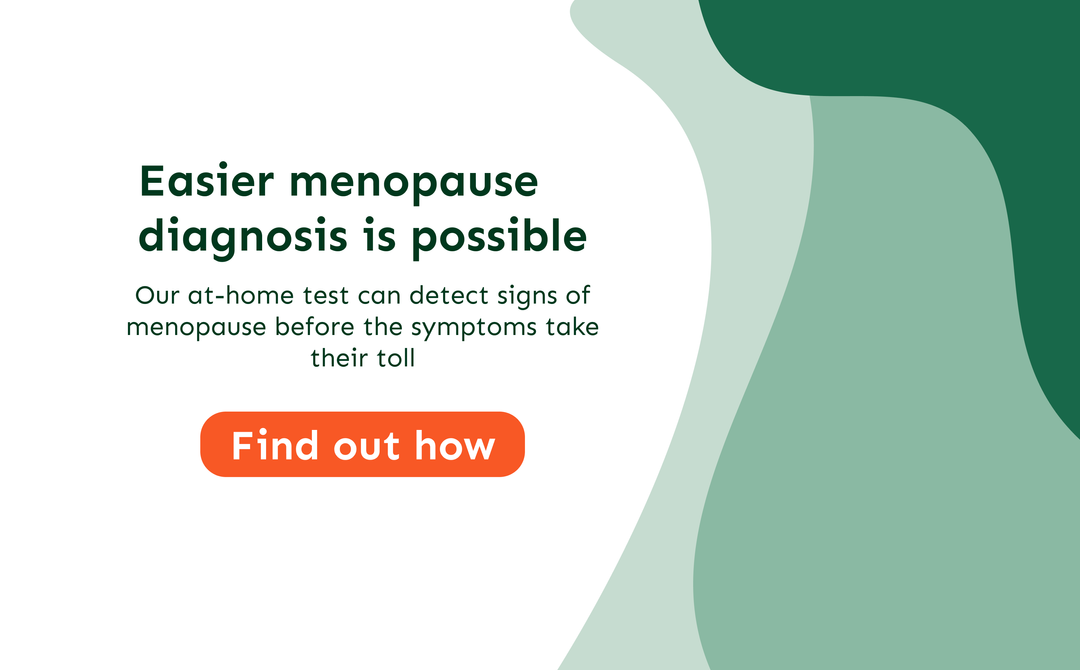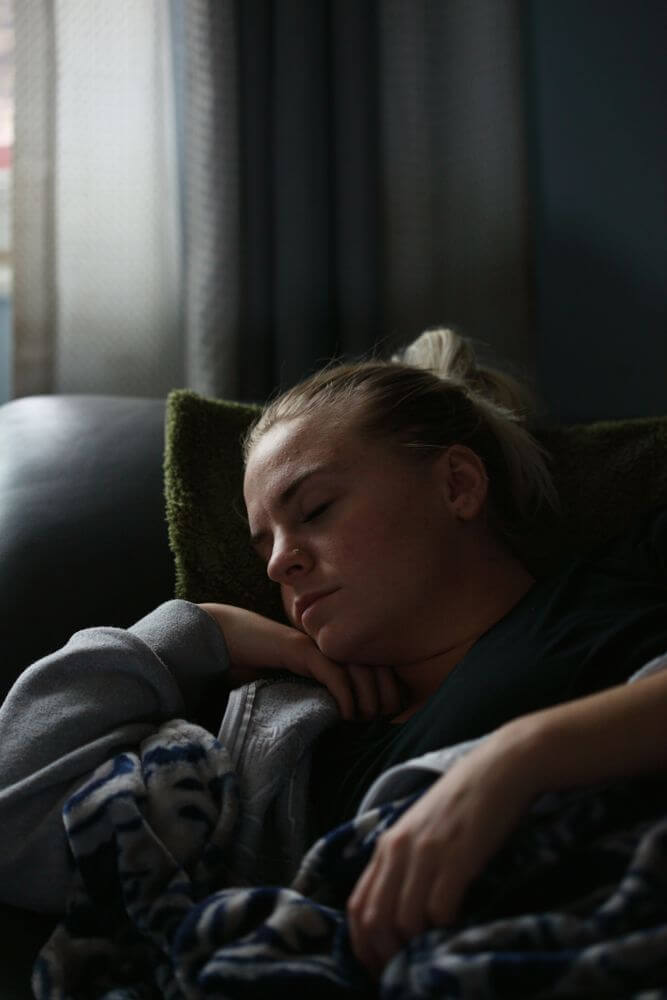What Causes Premature and Early Menopause?
What are the signs of early menopause? Could you be experiencing early menopause symptoms? Find out if lifestyle choices are increasing the risks of early menopause.
Summary
- As challenging as menopause is, early and premature menopause may be even more of a challenge. Understanding these terms could help.
- There is a slight difference between premature menopause and early menopause, with premature menopause being when menopause happens before you are 40 and early menopause before the age of 45. Premature and early menopause can and should be diagnosed as these may be linked to other health conditions.
- Though in the majority of cases, there are no known factors contributing to early or premature menopause, cancer treatment, surgery, personal and family medical history, as well as some lifestyle factors, may be potential triggers. For example, some cancer treatments, operations, family history and diseases can cause early menopause. Then there are lifestyle factors like smoking and poor diet which can also have an impact.
- The scientific evidence for the effectiveness of lifestyle changes to help reduce the risk of early menopause is mixed but research points to certain factors having an impact on the age of natural menopause beginning. GlycanAge is currently the only biological age test that accurately measures your body's unique response to lifestyle changes. Together we can make sure you’re making the smart choices for ageing well.
Introduction
Many women wonder why they are going through premature or early menopause, and while in some cases there are identifiable medical conditions or lifestyle choices that may have a determining impact, in 50% of cases there are no known causes.
Premature and early menopause may be incredibly difficult to deal with and emotionally challenging. In this article, we aim to provide you with supportive information to understand that period somewhat better.
What Is Early Menopause?

Menopause refers to menstrual periods coming to an end due to a drop in hormones. Women tend to notice signs of menopause between the ages of 45 and 55, and it's a natural process all women will go through. Premature and early menopause refer to situations when women go through menopause at an earlier age than typically expected.
There is a slight difference between premature menopause and early menopause:
- Premature menopause is when menopause happens before you are 40
- Early menopause is when menopause happens before the age of 45
Menopause has been known to happen to women in their 20s and 30s, but it is rare. For example, early menopause occurs in around 5% of women and premature menopause in about 1% of women. Only around 0.1% of women will experience menopause in their 20s, so although it is uncommon, it can happen.
Two other important terms that are used often in regard to menopause are perimenopause, which refers to the onset of menopausal symptoms and the period leading up to menopause, and post-menopause which refers to the time after menopause when women may still be affected by menopausal symptoms.
Diagnosing early and premature menopause may be tricky. Tests and assessments are done to help the diagnosis include:
- Assessing the regularity of your menstrual periods
- Running through family history to check if your relatives started menopause early
- A full physical exam
- Blood tests to measure hormone levels
- Checking for other medical conditions that could be contributing to symptoms
If you have not had a period (including any spotting) for 12 months and are not on any medication that could affect menstruation, there is a chance you have reached menopause. Although it isn't possible to reverse menopause, there are ways to help manage the symptoms and side effects of menopause.
How Do You Know You Are Starting Early or Premature Menopause?
.jpg?alt=media&token=f4b5c273-341c-4bb2-a7d8-b5079fea1e79)
Women can experience a range of premature menopause symptoms, and everyone's journey through menopause will be unique to them. A common sign is menstrual cycle irregularity for some time before the very last period. Your cycles may be longer or shorter, with many women having spotting in between.
The other symptoms of premature and early menopause experienced by many women include the following:
- Hot flashes
- Night sweats
- Vaginal dryness and discomfort during sexual intercourse
- Changes to your sex drive (libido)
- Frequent need to urinate
- Regular urinary tract infections (UTIs)
- Problems sleeping (insomnia)
- Emotional fluctuations (mood swings, irritability, depression and anxiety)
- Dry skin, dry mouth and dry eyes
- Tender breasts
- Racing heart
- Headaches
- Joint and muscle pain
- Difficulty concentrating
- Being forgetful
- Weight gain or weight loss
- Hair loss or thinning
If you are concerned about experiencing early or premature menopause, get yourself checked out by a medical professional. Research has indicated that women who go through early menopause have an increased risk of some health conditions, including cardiovascular disease and osteoporosis, due to diminished oestrogen hormone levels. A GP can usually make a diagnosis of early menopause and may be able to offer treatments.
The main treatments for early menopause include hormone replacement therapy (HRT) or a combined contraceptive pill. These treatments will usually be needed until at least the age of natural menopause (around 51 years old) and may provide some protection against osteoporosis and other conditions which you are at higher risk of developing after menopause.
Causes of Early and Premature Menopause

There can be many reasons some women experience early and premature menopause – with some completely beyond their control. These can include cancer treatments, certain health conditions and various surgeries. Anything that can cause damage to your ovaries or stops your body from making oestrogen estrogen can cause menopause.
Some causes of early or premature menopause include:
- Chemotherapy or radiation therapy for cancer
- Surgery that removes your ovaries (oophorectomy)
- Surgery that removes your uterus (hysterectomy)
- A family history of early menopause
- Starting your first period before your turn 11 years old
- Chromosomal abnormalities such as Fragile X or Turner's syndrome
- Autoimmune diseases like rheumatoid arthritis, Crohn's disease or thyroid disease
- Myalgic encephalomyelitis/chronic fatigue syndrome (ME/CFS)
- Having HIV or AIDS
- Infections like mumps
Women fighting cancer may need radiotherapy or chemotherapy, which can cause premature ovarian failure. This can sometimes be a permanent or temporary effect of the cancer treatment, and the risk of having early menopause depends on:
- Age, with pre-pubertal girls being able to better tolerate stronger treatment than older women.
- Type of treatment
- Radiotherapy location, with pelvis or brain radiotherapy carrying a higher risk
Early menopause may also happen due to ovaries prematurely stopping oestrogen production, which is also referred to as primary ovarian insufficiency or premature ovarian failure. This condition is sometimes known as primary ovarian insufficiency or premature ovarian failure. Premature ovarian failure may occur because of chromosomal abnormalities, autoimmune disease or infection, but it may also be hereditary.
Lifestyle Choices That Reduce The Risk Of Early Menopause

The scientific evidence for the effectiveness of lifestyle changes to help reduce the risk of early menopause is mixed. However, some research points to certain factors having an impact on triggering menopause. Some lifestyle factors that have been associated with early onset menopause are:
- Smoking – Research has found that smoking has been linked to ovarian ageing and follicular depletion, as well as impaired oestrogen production.
- Unhealthy diet – A UK study found that high consumption of fresh legumes and oily fish was associated with delayed onset of natural menopause, whereas consumption of refined pasta and rice was linked to earlier menopause.
- Not enough vitamin D – Emerging data suggests that high vitamin D intake could help reduce the risk of early menopause, but this is after other factors, such as smoking, have been addressed.
Although much research is still needed on how lifestyle impacts premature and early menopause, following a healthy lifestyle and making behavioural changes can improve overall well-being and help women manage menopause symptoms.
A great way to get a true picture of how well your body is ageing and identify whether you’re ageing prematurely is by doing a biological age test. GlycanAge is the only biological age test that accurately measures your body's unique response to lifestyle changes. Once you get your results back, we can work together to make the changes needed to ensure you're ageing the best way possible, which will support you through menopause and beyond.
Closing Thought
Early and premature menopause may have a massive impact on a woman's health and well-being. Natural menopause can occur prematurely for many reasons, but it can also result from several factors, including medical conditions, genetics and personal habits like smoking and unhealthy eating. We should all be trying to live as healthily as possible through all stages of our lives. With the support of GlycanAge, you can make the improvements needed to age as well as you can.
Frequently Asked Questions (FAQs)
What can cause you to go into early menopause?
In many cases, the cause of early menopause is unknown. However, some factors that may contribute to early menopause include a family history of early menopause, lifestyle choices like smoking, and health conditions such as autoimmune disorders, chronic illness and the effects of some cancer treatments.
Is early menopause rare?
Early menopause is rare and is estimated to affect around 5% of women between the ages of 40 and 45 years. Premature menopause only affects around 1% of women under the age of 40.
What is the earliest age to enter menopause?
Though it is possible to become menopausal as early as in your 30s or even 20s, that is extremely rare. The average age for women to reach menopause in the UK is 51.
How can I prevent early menopause?
Though it is not possible to fully prevent menopause from happening, healthy habits such as nutritious diet and smoking avoidance might help delay it as well as aid symptom management when the hormonal transition begins.
Can stress bring on early menopause?
There is a theory that excess stress can lead to elevated stress hormones, which accelerate menopause. However, the direct connection between stress levels and natural menopause is still being investigated.
References
https://www.nhs.uk/conditions/early-menopause/
https://www.nhsinform.scot/healthy-living/womens-health/later-years-around-50-years-and-over/menopause-and-post-menopause-health/early-and-premature-menopause
https://academic.oup.com/eurheartj/article/43/40/4148/6646730
https://www.ncbi.nlm.nih.gov/pmc/articles/PMC5888979/
https://jech.bmj.com/content/72/8/733
https://www.ncbi.nlm.nih.gov/pmc/articles/PMC5445672/
https://www.ncbi.nlm.nih.gov/pmc/articles/PMC4666866


